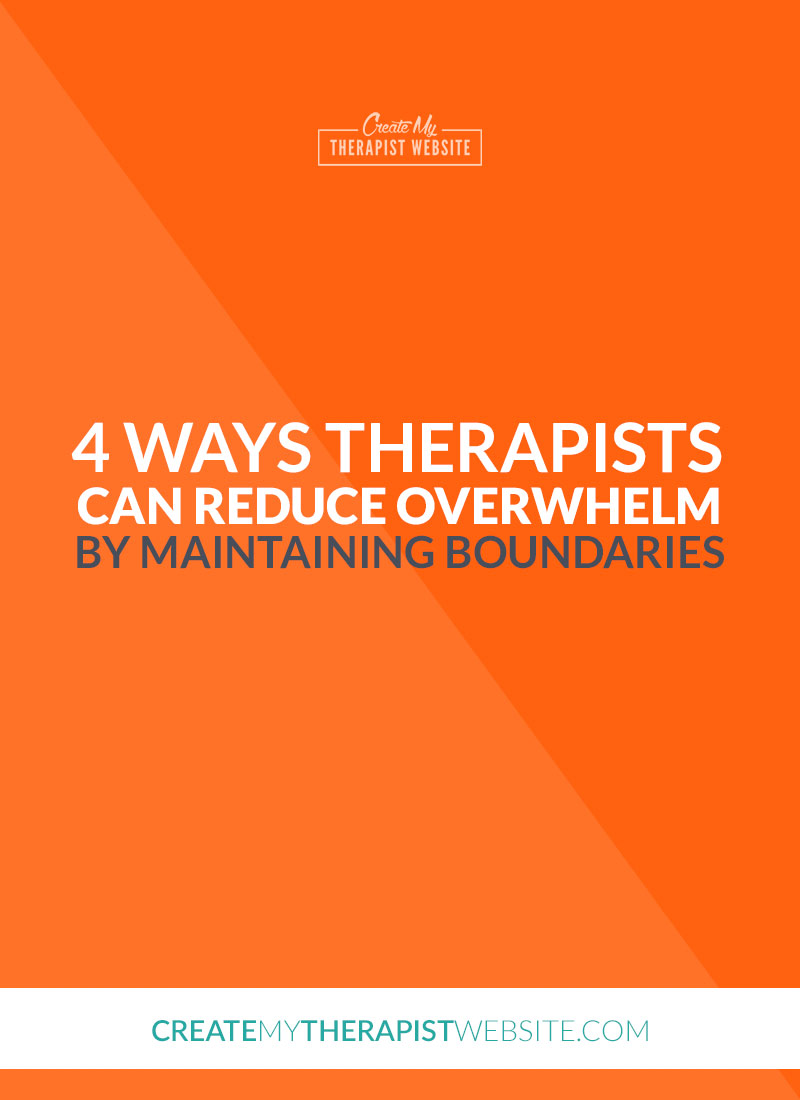A guest post by Sarah Leitschuh
As many therapists do, I found the leap into private practice to be an overwhelming experience. I built my clinical skills in an agency setting where I felt so confident. But, in the early days of private practice I found myself doubting even my most foundational skills as a therapist.
There was so much to learn, so much to do and so much to keep track of! I tried to do it all and found myself pulled in a million directions.
As you can imagine, this left me exhausted and frustrated.
Eventually, I realized that the practice I had been creating didn’t meet my needs and wasn’t in alignment with my goals for going into private practice.
Although I was building a profitable practice and doing good work with my clients, I wasn’t showing up in the way that I wanted to in any of my relationships inside or outside of my office.
I gave myself permission to slow down and re-vision my approach to my work and how my work would fit with my life outside of work.
As I’ve worked on fine tuning the way in which I approach my work, I have also supported other therapists in doing the same.
After reflecting on my conversations with therapists from across the country, I found that most often issues that contribute to therapist overwhelm are often linked to therapists’ struggle to maintain boundaries around their time.
4 Ways Therapists Can Reduce Overwhelm By Maintaining Boundaries
1. Clearly Define and Communicate Your Work Schedule
First and foremost, it is essential to clearly define your schedule for yourself.
You must be committed to the schedule that you create, so you can avoid the temptation to create regular “exceptions” to your schedule in order to accomodate to others’ wishes.
When you have a clearly defined schedule that you are able to commit to, you are able to confidently communicate this to your clients and let them know when you are available to see them and what they can expect from you in terms of timeframes for returned calls/emails, written reports and any other information they may need from you.
When you know exactly when you will be working you are able to map out the tasks that you need to do and avoid the spill-over of work into your personal time.
A clearly defined schedule with time blocked out for all practice related tasks allows therapists to feel less anxious about finding the time needed to see clients and complete administrative tasks.
2. Create Systems and Set Aside Dedicated Time For Regular Tasks.
Clearly defined systems help therapists complete their work in an efficient way and eliminate the uncertainty of not knowing when or how tasks will be completed.
Systems address the who, what, when, where and how of the work we do as therapists, specifically as it relates to tasks we do often.
Therapists should look at creating systems for many areas in their practices including; welcoming new clients, communications, documentation, billing/financial matters and scheduling.
Additionally, I suggest that when possible, therapists batch similar tasks together.
For example, designate set times/days for routine tasks such as checking email or writing session notes instead of randomly doing them whenever you have a few minutes to spare.
Avoid temptations to frequently deviate from the systems and structures that you create.
I love the flexibility of private practice as much as the next person, but know that too much flexibility leads to incomplete work and the spillover of work into my personal time.
3. Say No To Opportunities (Including Potential Clients) That Are Not In Alignment With Your Practice Goals
In our eagerness to start seeing clients and build our practices, it is easy to accept almost every opportunity that presents itself to us (think things like new client inquiries, invitations to speak to a group or a potential collaboration with a colleague) without really considering how the opportunity fits with the ultimate vision for our practice.
This is a habit that can carry into practices that are decades old.
Unfortunately, I’ve seen many therapists (including myself) inadvertently end up saying yes to opportunities that suck time and energy because they are not in alignment with our practice goals or vision.
Therapists need to allow ourselves the space and time to reflect on and evaluate opportunities before saying yes.
Ultimately, we want to save our time, energy and focus for the work that we are most passionate about.
I’ve found it helpful to build in a buffer of time before I officially respond to opportunities that present themselves by saying things like “Let me think about that and get back to you.”
4. Create Rituals and Routines to Turn Off Work at the End Of The Day and Week
As a therapist and entrepreneur, I find it is important to be intentional in planning for how we wrap up our work at the end of the day and week.
The tasks that we need to complete will never be 100% complete and we need to be able to tolerate tabling unfinished work for the next day or the following week instead of pushing ourselves to work unreasonable numbers of hours each week.
Therapists who struggle to turn off work tend to find themselves more overwhelmed and burnt out.
The therapists who I have spoken to who are the least overwhelmed by their work are those who have made the time to reflect on and consistently implement the rituals and practices that they find most effective to turn off work and allow themselves the time and space to recharge.
About Sarah
Sarah Leitschuh is a Minnesota-based therapist and coach who is on a mission to help reduce therapist overwhelm. Sarah works with therapists who are ready to find a way to approach their work that leaves them energized at the end of the week instead of burnout and depleted. You can learn more about Sarah’s work at www.sarahleitschuhcounseling.com.
The Overwhelm Assessment for Stressed Out Therapists is a tool that allows therapists to take inventory of all the areas contributing to their overwhelm and develop an action plan to reduce their overwhelm today. Claim your complimentary copy of the Assessment.
[av_sidebar widget_area=’Blog Post Resource Library Opt In’ av_uid=’av-39garf’]




